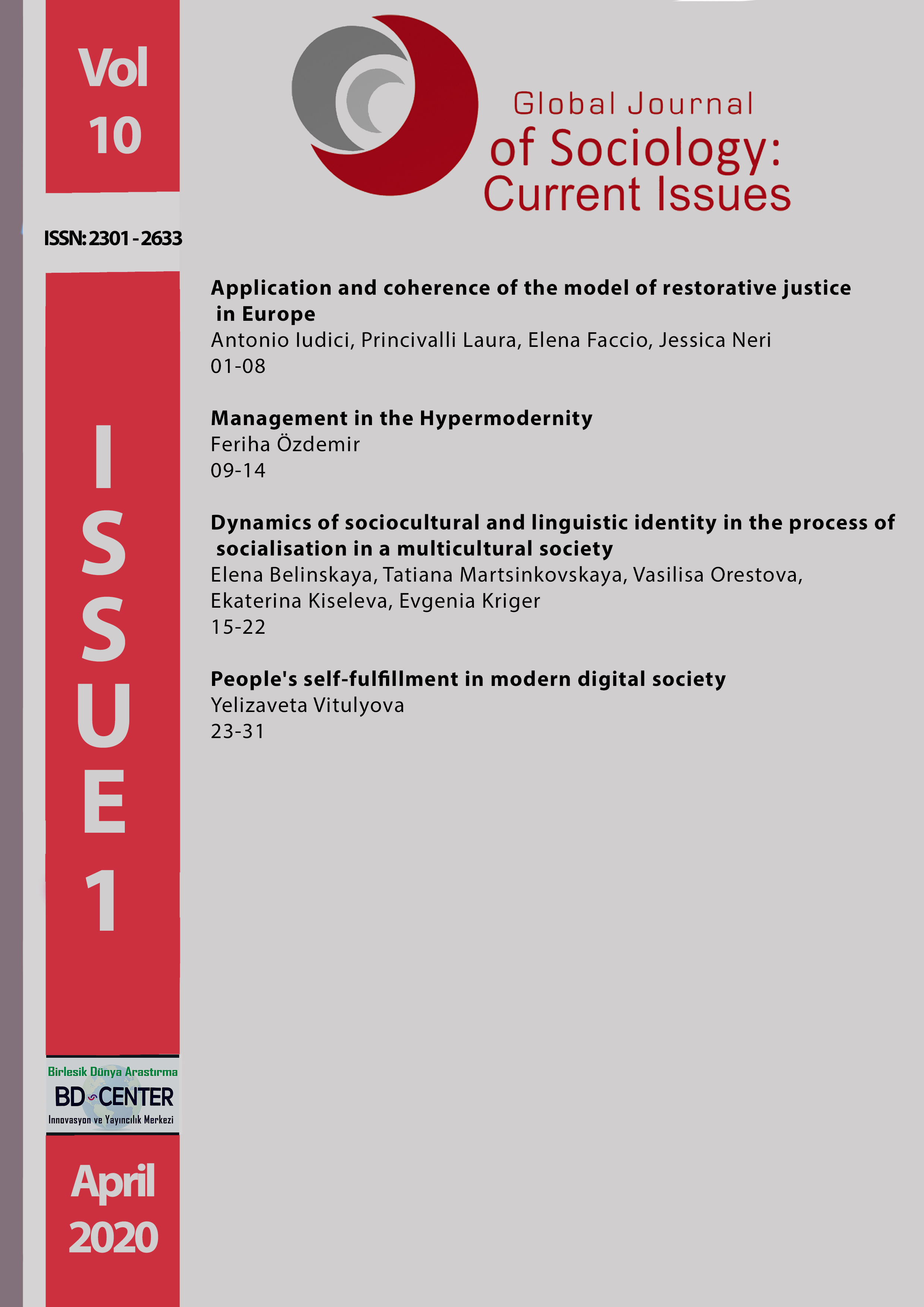Dynamics of sociocultural and linguistic identity in the process of socialisation in a multicultural society
Main Article Content
Abstract
The relevance of the problem of socialisation in multicultural space is extremely high. Its significance is connected with the processes of globalisation and increasing migration. In this situation, the sociocultural and, especially, linguistic identity can be analysed as a bonding and bridging social capital that helps or complicates socialisation, depending on the specifics of the social situation. These assumptions were checked in the empirical research of the sociocultural and linguistic identity of the three groups of ethnic Germans: living in Russia, in the CIS and those who moved to Germany. The obtained data showed the bilingualism of the majority of respondents. At the same time, respondents from Russia and Germany consider both Russian and German languages as native, while respondents from the CIS no longer regard German as their mother language. For them, ethnic, not linguistic, identity is the most essential for socialisation in a multicultural society. For Germans living in Russia, on the contrary, both languages help in communication and in professional activity. For the Germans, who now live in Germany, the Russian language helps in understanding their sociocultural specifics. The future is associated with the German language. Our respondents answer that the main group of socialisation for them is the family. This was especially marked in the answers of respondents living in Russia and Germany. So, we can state that in a complex multicultural environment, the family for them is not only a group for socialisation, but also an object of identity, partly playing the role of psychological defence and support in a changing world. The obtained results also showed a tendency towards individualisation. For the respondents from Russia and Germany, the main identity groups, besides family, are professional groups and groups with common interests. Thus, it can be concluded that linguistic identity plays the role of both bonding and bridging social capital. In positive socialisation, sociocultural identity plays the role of a bridging rather than a connecting capital. Mixed linguistic identity is predominantly a positive moment, increasing socialisation in a multicultural environment.
Keywords: Socialisation, transitivity, identity, multicultural world.
Downloads
Article Details
- Authors retain copyright and grant the journal right of first publication with the work simultaneously licensed under a Creative Commons Attribution License that allows others to share the work with an acknowledgement of the work's authorship and initial publication in this journal.
- Authors are able to enter into separate, additional contractual arrangements for the non-exclusive distribution of the journal's published version of the work (e.g., post it to an institutional repository or publish it in a book), with an acknowledgement of its initial publication in this journal.
- Authors are permitted and encouraged to post their work online (e.g., in institutional repositories or on their website) prior to and during the submission process, as it can lead to productive exchanges, as well as earlier and greater citation of published work (See The Effect of Open Access).
